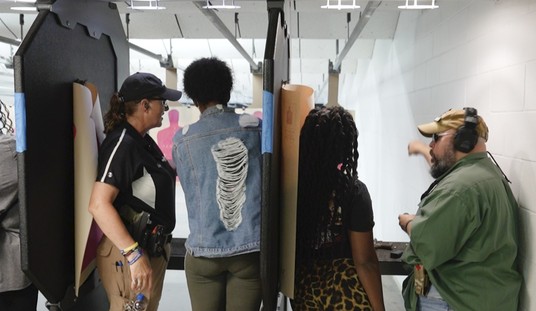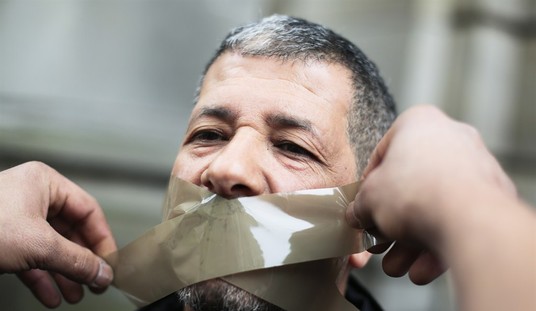It’s been a week of big decisions in our nation’s capital. The Supreme Court’s 5-4 verdict on Obamacare was the biggest story for politicians, pundits and the so-called mainstream media.
That the justices reaffirmed the constitutional authority of Congress to levy taxes — even when the tax is called a “mandate” — should not have surprised anyone. The second-place decision of the week was the unprecedented 255-67 vote in the U.S. House of Representatives to hold Attorney General Eric Holder in contempt of Congress for his unwillingness to respond to congressional subpoenas for information on the Obama administration’s notorious “Fast and Furious” gunrunning scheme.
Both of those decisions will provide countless hours of debate, commentary and fuel for political fundraising over the next four months. Though neither matter will be completely resolved until after Americans go to the polls Nov. 6, at least the Supreme Court and the House of Representatives have proved that they can make decisions — and we know how they were made.
Though the Supremes always debate in private, their determination is explained in depth — and by reading their decision, we know the thinking of each member of the court. The House debate and vote on holding Holder in contempt was conducted in the open for all to see.
The American people now can weigh where they stand on those decisions and decide for themselves whether they agree and, in the case of Congress, whether they want to return or replace their representatives. But we still don’t know how decisions are made at 1600 Pennsylvania Ave. — and it has been that way since the O-Team arrived in Washington, particularly on matters of national security.
This is, after all, the administration that came to office promising “transparency,” a “responsible end to Bush’s wars,” to “shut down Gitmo” and to “try terrorists in civilian courts.” Now, better than three years on, none of that has happened — other than the precipitous withdrawal of U.S. and NATO troops from Iraq.
Other than with a tidal wave of leaks — all designed to portray a dithering administration in disarray as bold and decisive — the White House never has explained the “what, why and how” for the decisions it has made (or has failed to make) on issues affecting our security.
Worse, the damage done by publicly disclosing highly classified national security information has put Americans at risk, jeopardized our ability to collect important intelligence and seriously damaged vital relationships with our allies. The Obama White House now says the leakers “must be held accountable.” That’s about as likely as the sun rising in the west tomorrow morning.
This week’s domestic policy decisions on Capitol Hill obscure the sanguinary consequences of attention-deficit disorder at the White House. In his June 4, 2009, Cairo speech, Obama famously expressed his “commitment” to “governments that reflect the will of the people” and specified, “You must maintain your power through consent, not coercion; you must respect the rights of minorities and participate with a spirit of tolerance and compromise; you must place the interests of your people and the legitimate workings of the political process above your party.”
Yet just two weeks later, when the ayatollahs ruling in Iran brutally crushed a popular challenge to a fraudulent presidential election, the O-Team decided to do nothing. Four months later, he was named a Nobel Prize winner.
Last year, as Arab Spring revolutions began sweeping dictators from power in Tunisia, Egypt and Libya, the White House announced a new doctrine: the “responsibility to protect” innocent civilians from despots — and let the United Nations and NATO “take the lead.”
Now, for the Syrian people caught in the crossfire of a civil war, the lack of American leadership is nothing short of catastrophic. Human rights groups estimate that the 15-month rebellion against the Assad regime in Damascus has cost more than 14,000 lives and at least 25,000 wounded — most of them innocent civilians.
On June 28, as the White House focused on Supreme Court and congressional decisions in Washington, Turkish troops were moving into position along their border with Syria. In Ankara, Prime Minister Recep Tayyip Erdogan said that his army regards Syrian military units approaching Turkey as a threat.
At the same time, Russian President Vladimir Putin has dispatched more naval infantry to protect the Russian naval base at Tartus — and presumably the underground joint Syrian-Russian command center in Damascus. The Obama administration, distracted by events in Washington, issued a response from Secretary of State Hillary Clinton in Helsinki, Finland: “We have great hope” that a meeting this weekend in Geneva hosted by U.N. special emissary Kofi Annan will be “a critical turning point.”
The operative word is “hope.” Hope is not a course of action. A course of action necessitates making decisions. Decisions require paying attention to what’s happening. That’s just one more reason we need to hire a commander in chief with an attention span greater than that of a fruit fly.








Join the conversation as a VIP Member